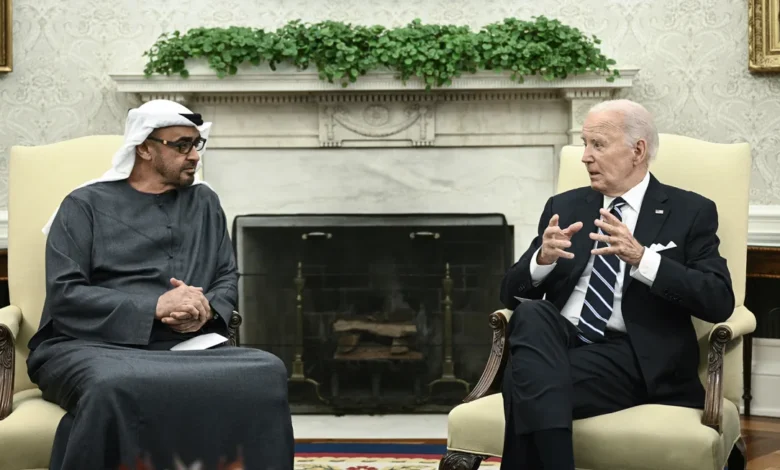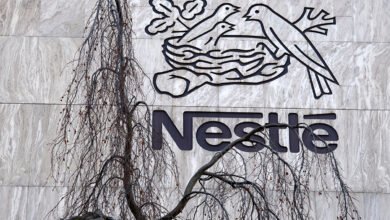
UAE’s Diplomatic Blueprint for a Conflict-Free Middle East
The United Arab Emirates (UAE) has emerged as a key player in shaping the future of the Middle East. With its strategic vision for regional stability, the UAE is taking bold steps to address long-standing conflicts and promote peace in the region. This approach has gained attention from global powers and regional neighbors alike, positioning the UAE as a pivotal force in diplomatic efforts to resolve complex issues such as the Israeli-Palestinian conflict and the ongoing situation in Gaza.
The UAE’s diplomatic blueprint encompasses several key elements that contribute to its effectiveness. These include fostering strategic partnerships with nations like the United States, leveraging cutting-edge technologies for diplomatic relations, and promoting economic cooperation to drive regional prosperity. The country’s approach also involves navigating challenges such as Chinese influence in the region and balancing its relationships with various global powers. By examining these aspects, we can gain insights into the UAE’s role in shaping a more stable and prosperous Middle East.
UAE’s Vision for Middle East Stability
The United Arab Emirates has emerged as a key player in shaping the future of the Middle East, with a vision focused on promoting regional stability and prosperity. The UAE’s approach to achieving this vision is multifaceted, encompassing diplomatic efforts, economic initiatives, and technological advancements.
Shifting focus from conflict to cooperation
The UAE has been actively working to transform the region’s dynamics by fostering cooperation among nations. This shift is exemplified by the Abraham Accords, which normalized relations between the UAE and Israel. This diplomatic breakthrough has opened new avenues for collaboration and dialog, paving the way for a more stable Middle East. The UAE’s commitment to this vision is evident in its efforts to promote peace and stability in various regional conflicts, including its support for a two-state solution to the Israeli-Palestinian conflict.
Economic prosperity as a foundation for peace
The UAE recognizes that economic development is crucial for long-term stability in the region. By leveraging its strategic location and strong financial reserves, the UAE has positioned itself as a hub for trade and investment. The country’s progressive economic policies, including the establishment of free zones and initiatives to attract foreign direct investment, have contributed to its economic growth and stability. These efforts extend beyond its borders, with the UAE providing significant foreign assistance to support development in other countries, thereby contributing to regional prosperity.
Technological advancement as a unifying force
The UAE has embraced technology as a means to foster regional cooperation and drive innovation. The country has made substantial investments in artificial intelligence, renewable energy, and space exploration, positioning itself as a leader in technological advancements. These initiatives not only benefit the UAE but also create opportunities for collaboration with other countries in the region. By sharing its expertise and resources, the UAE aims to promote technological progress as a unifying force for the Middle East.
Strategic Partnerships: UAE and USA
The United Arab Emirates and the United States have forged a robust strategic partnership that spans various sectors, including diplomacy, defense, and technology. This alliance has become a cornerstone of stability in the Middle East, with both nations working together to address regional challenges and promote shared interests.
Strengthening diplomatic ties
The UAE and the US have enjoyed friendly relations since 1971, with formal diplomatic ties established in 1972. Over the decades, this relationship has evolved into a strong partnership based on mutual trust and shared goals. The UAE plays an influential role in the Middle East and is considered a key partner for the United States in the region. The two countries collaborate on a wide range of issues, including non-proliferation, trade, law enforcement, and cultural exchange.
Collaboration in AI and clean energy
In recent years, the UAE and the US have expanded their cooperation to include cutting-edge technologies and clean energy initiatives. The leaders of both nations have affirmed their commitment to advancing safe, secure, and trustworthy artificial intelligence. This collaboration aims to foster innovation, align regulatory frameworks, and promote ethical AI research and development. Additionally, the US-UAE Partnership for Accelerating Clean Energy (PACE) initiative demonstrates their shared commitment to addressing climate change and meeting the energy demands of AI systems with clean energy sources.
Defense cooperation and its implications
The defense partnership between the UAE and the US has been a crucial aspect of their relationship. The UAE has been nicknamed “Little Sparta” by US military officials for its active role in countering extremism in the Middle East. The two countries have signed several defense cooperation agreements, including the 2019 Defense Cooperation Agreement, which underscores their collaboration in defeating terrorist groups and securing regional stability. The US has also facilitated the UAE’s acquisition of advanced defense systems, including F-35 fighter jets, to enhance its military capabilities and interoperability with US forces.
The Role of Technology in Diplomatic Relations
UAE’s investment in AI and infrastructure
The UAE has emerged as a leader in embracing artificial intelligence and advanced technologies, positioning itself as a global hub for innovation. The country’s commitment to AI is evident in its national strategy, which aims to become a world leader in AI by 2031. This vision has led to significant investments in AI research, development, and infrastructure.
The UAE has taken bold steps by appointing the world’s first AI minister and establishing the Mohamed bin Zayed University of Artificial Intelligence. These initiatives demonstrate the country’s dedication to fostering AI talent and driving technological advancements. Furthermore, the UAE has launched ambitious projects like the Emirati Genome Program, showcasing its commitment to leveraging AI in various sectors, including healthcare and life sciences.
Balancing relations with USA and China
As the UAE pursues its technological ambitions, it finds itself navigating a delicate balance between its relationships with the United States and China. The country has forged strong partnerships with American tech giants like Microsoft, IBM, and NVIDIA, while also maintaining robust economic ties with China.
The UAE’s approach to this balancing act has been described as a “multilayer approach,” where it seeks to maintain productive relationships with both global powers. However, this strategy has faced challenges, particularly in areas where U.S. security concerns intersect with Chinese technological involvement. The UAE has had to make adjustments, such as scaling back certain collaborations with Chinese firms, to address these concerns and maintain its strategic partnership with the United States.
Technology as a tool for regional development
The UAE views technology not only as a means of economic diversification but also as a tool for regional development and cooperation. By positioning itself as a tech hub, the UAE aims to drive innovation and economic growth across the Middle East. Initiatives like the Global AI Infrastructure Investment Partnership (GAIIP) demonstrate the UAE’s commitment to leveraging technology for broader regional prosperity.
Challenges and Opportunities in Regional Peacebuilding
Addressing the Israel-Palestine conflict
The UAE has emerged as a key player in addressing the Israeli-Palestinian conflict. Through its normalization with Israel via the Abraham Accords, the UAE aims to leverage its relationship to alleviate the humanitarian situation in Gaza. However, the ongoing conflict has presented challenges, with criticism of the accords intensifying during Israel’s war in Gaza. The UAE’s image has worsened in the region, with polls showing negative sentiment towards its approach to the Gaza war.
Promoting dialog and compromise
The UAE believes that by building stronger relationships with Arab countries, Israel will feel less threatened and more willing to address the Palestinian issue. The country has called for an immediate ceasefire and adherence to international law. It emphasizes the need for a comprehensive strategic approach to end the cycle of violence and achieve a two-state solution. The UAE supports diplomatic efforts towards establishing an independent Palestinian state existing alongside Israel.
Economic integration as a path to stability
The UAE views economic integration as crucial for regional stability. It has developed strong trade ties with Israel, becoming its second-largest trading partner in the Middle East. The UAE-Israel relationship has grown rapidly in finance, agriculture, energy, and technology sectors. However, the ongoing conflict poses challenges to the UAE’s vision of an interconnected Middle East. The UAE believes that economic development and cooperation can contribute to long-term peace and stability in the region.
The UAE’s diplomatic blueprint for a conflict-free Middle East showcases its commitment to regional stability and prosperity. By fostering strategic partnerships, leveraging technology, and promoting economic cooperation, the UAE has positioned itself as a key player in shaping the future of the region. Its efforts to address long-standing conflicts and encourage dialog have the potential to create a more peaceful and interconnected Middle East.
However, the path to regional stability is not without its challenges. The ongoing Israeli-Palestinian conflict and the delicate balance of relationships with global powers require careful navigation. Despite these hurdles, the UAE’s approach, which combines diplomacy, economic development, and technological advancement, offers a promising blueprint to tackle complex regional issues. As the UAE continues to refine and implement its strategies, its influence on Middle Eastern diplomacy and peacebuilding efforts is likely to grow.







[…] in the Middle East, achieving a GDP growth rate of 7.9% in 2022. This economic powerhouse shows its dedication to encouraging international partnerships and deepens global economic cooperation […]
[…] evolving situation raises significant questions about West Africa’s political future, regional stability, and the emerging balance of power in what was historically France’s sphere of […]
[…] Fattah El Sisi and French President Emmanuel Macron. Their high-level meetings showed the UAE’s expanding role in global affairs. The UAE deepened its commitment to build stronger international […]
[…] Sheik Mohammed bin Abdulrahman Al Thani at Qasr Al Shati Palace in Abu Dhabi to strengthen regional diplomatic ties. The high-level meeting represents a most important step to promote cooperation between […]
[…] to prosecuting alleged war crimes. Member states must now make tough choices about their diplomatic relationships when it comes to arrest and extradition […]